Staff and students taking critical roles in enhancing the Black experience on campus
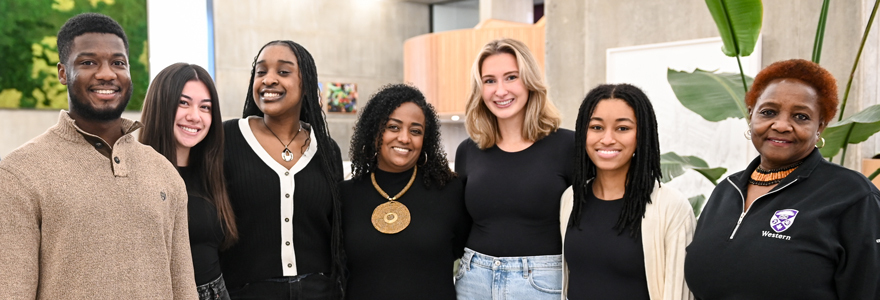
By Cam Buchan
Nassisse Solomon, PhD, recalls looking around the room at a campus event last spring.
“In a room of about 100 people, there were just five Black people,” said Solomon, a program coordinator in the Department of Global Health Systems. “This observation prompted several questions for me, and underscored the importance of understanding why this was the case.”
The experience – not unique to Solomon – was one of many during her time at Western that encouraged her to get involved with a university-wide initiative designed to improve the experience of the Black community on campus.
“My PhD project and my current role as Program Coordinator were always fuelled by creating spaces of belonging and celebrating our collective diversity. I have had the privilege of working with more than 100 graduate students in this capacity, and the goal has always been to foster a sense of community and connection in shared interests. Over the years, this has translated into Black students seeking me out for guidance or mentorship, something I place a great deal of value in.”
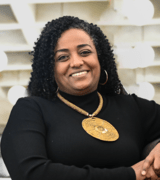 Nassisse Solomon
Nassisse Solomon
Solomon is one of many in the Schulich Medicine & Dentistry community playing major roles in two recently-funded initiatives designed to make Western a more welcoming place for current and future Black staff, faculty and students.
They’re developing a new “virtual hub” to better connect the campus Black community to each other and to critical resources. They’re establishing an ongoing Black speaker series to highlight Black excellence and foster crucial discussions within the campus community. They’re playing a leading role in researching the experiences of Black youth in Southwestern Ontario, and creating a professional development network to support current and past members of Western’s Black community in their career and personal development.
“The idea is to better understand the experiences of our Black community and what some of the challenges are, and to determine how we can overcome them,” said Solomon.
The cross-campus work stems from two major grants received by Professor Godwin Arku from the Department of Geography and Environment who will oversee the initiatives. The first project - called “Diversity Western: Enhancing the Black Experience” – received the Robbins-Ollivier Award for Excellence in Equity, including $100,000 in funding. The second will study the marginalization of Black youth in five regions – Chatham-Kent, Elgin County, London-Middlesex, Windsor-Essex and Sarnia-Lambton – and use that data to inspire and improve community programs to serve young people. Funds for this project come from a Social Sciences and Humanities Research Council (SSHRC) partnership development grant of $200,000 over the next two years.
Solomon, an alum who holds a PhD in History with a specialization in migration ethnic relations, has taken on a leadership role in bringing crucial elements of the grants to fruition. She is leading the subcommittee tasked with the creation of a professional development network for Western’s Black community and also establishing the development of a virtual hub that will help connect Black staff, faculty and students with each other, and to key resources. The hub – to be launched later in February – will bring together in one place social clubs, events, academic and research information and stories showcasing Black excellence on campus.
The hub is a great illustration of what is possible when staff, faculty, and students are connected across faculties and schools to create something of value for all, said Solomon. She is in good company with other Schulich faculty, staff and students getting involved in the initiatives.
Among them are students Kofi Brako, Tavia Gilkes, Sara Wilson and Martha Valmana Crocker. All fourth-year students in Schulich’s Honours Specialization, Interdisciplinary Medical Sciences program, they got involved with the virtual hub as part of a capstone project in Dr. Sarah McLean’s community learning course in Interdisciplinary Medical Sciences.
Creating a place to connect
To develop a framework for the virtual hub, the students reviewed similar resources on campus, including Huron University College, Brescia College and Kings University College, and at universities across Canada.
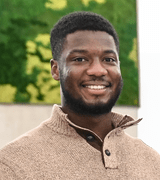
Kofi Brako
“In browsing Reddit and talking to others who were already at Western, my understanding before I came was the Black community here wasn’t necessarily as developed as some other places in Ontario. So, it was definitely something I had to consider in coming here,” said Brako.
Helping develop the virtual hub opened his eyes to the depth of the Black community on campus, as well as the range of networks and resources available – and the need to make it easier for people to find them.
“I’ve come to realize that the Black community at Western is present and thriving, but it can be difficult to access. You can definitely fall through the cracks. We’re trying to make it more accessible to incoming and current students, as well as faculty and staff.”
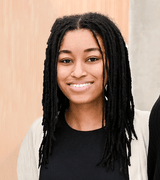
Tavia Gilkes
As an international student from Barbados, Gilkes was one of those students who initially fell through the cracks.
Like others, her first two years were spent online during the pandemic. But Gilkes didn’t feel the community that others had told her was here at Western.
“I felt like my first two years, I was alone,” said Gilkes. “I just wanted to get more involved and see more people like myself and feel like I had a home away from home.”
Gilkes said it needs to be much easier for new Black members of the Western community to uncover the resources and networks that can improve their experiences on campus.
“It has been very inaccessible and hidden, especially for those who aren't technology literate. Now it’s not.”
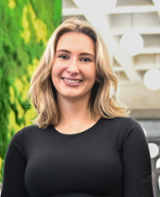
Martha Valmana Crocker
“It's been eye opening how different people's experiences at Western can be. I haven’t walked with the Black community in this sense, so I was curious about the different experiences and challenges and how I could help,” said Crocker.
The project enabled her to interact with others across campus and “hear so many different perspectives from people from different backgrounds at Western. I've definitely gained a lot of knowledge.”
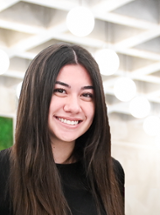
Sara Wilson
Wilson could immediately see the potential of the hub and how it could help others when she came to the project.
“There are a lot of events that go under the radar,” said Wilson. “But they're really pivotal events and being able to find them is so important.”
The virtual hub collaboration has been a great opportunity for the students to work with faculty, staff, and students across the university to co-create one of the four deliverables of the project, Solomon said.
“I'm really proud of the work the students put together. They certainly did rise up to the bar.”
In addition to the hub, other project deliverables include:
- A research project that interviews Black staff, faculty and students on campus to understand more about their experiences, their needs, challenges and successes.
- An Afrocentric speaker series, including special events with Author Matthew Dawkins in collaboration with the University Book Store on Feb. 27 and The Right Honourable Michaëlle Jean on Feb. 29 are planned. An additional event, coordinated by Western’s Office of EDI and the Schulich Office of Equity, Diversity, Inclusion and Decolonization, with Dr. Chika Stacy Oriuwa, is scheduled for Feb. 12
- New professional development programs – informed by the research – are planned for the fall.
Where are the Black students?
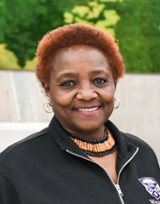 Melanie Katsivo
Melanie Katsivo
Melanie Katsivo, associate director of Programs & Partnerships at The Africa Institute, is also playing a critical role in the research components of the grants.
Katsivo has been involved in campus communities for more than 20 years and has, “many times, if not all of the time, been the only Black person in the room.”
As co-director of the SSHRC project and co-applicant in the Robbins Ollivier Award, together with her experience at The Africa Institute, she has a broad perspective on the importance of these two initiatives.
She asks the simple question: Where are the Black students?
“That’s the question,” said Katsivo. “Why do some of them feel they would be more comfortable going to school in other places and not here?”
The answer, she said, is that they don’t see themselves here.
“The whole essence of the Black experience at Western project is to enhance and improve that sense of belonging that Black people feel at all levels, whether they’re faculty, staff or students,” Katsivo said.
Solomon echoed those sentiments:
“It’s important to demonstrate that Schulich is taking a leadership position in supporting initiatives that are cognizant of what’s happening right on campus.”
Funding details
- The SSHRC partnership development grant of $200,000 runs over two years (May 2023-25).
- The Robbins-Ollivier Award for Excellence in Equity is funded by the Canadian Institutes of Health Research, the Natural Sciences and Engineering Research Council and SSHRC, through the joint Canada Research Chairs Program.








